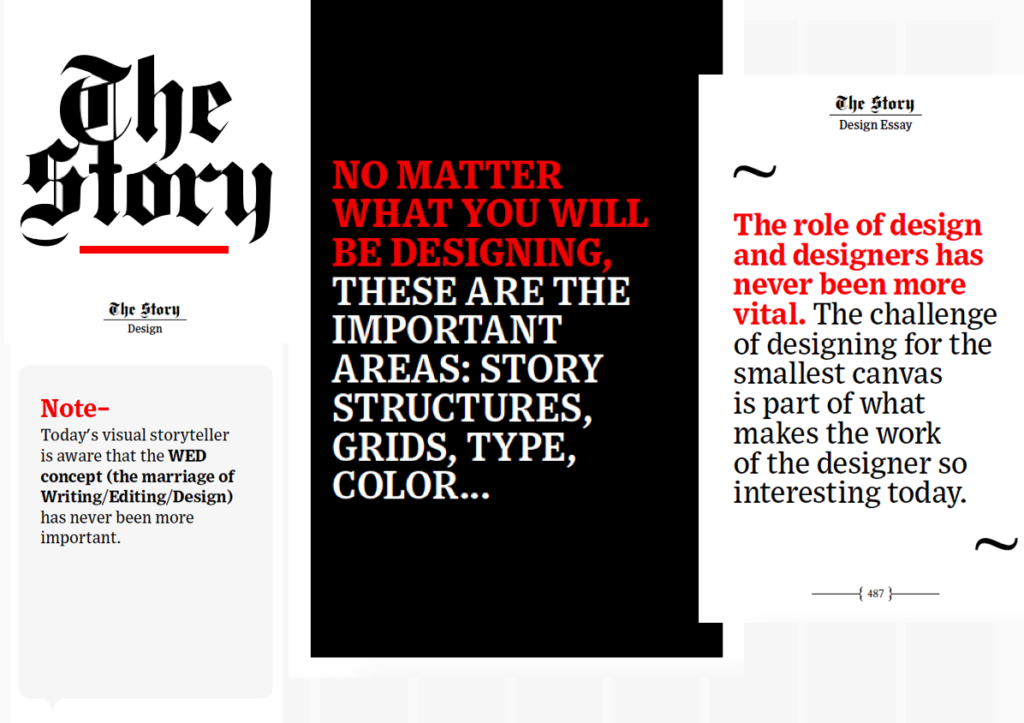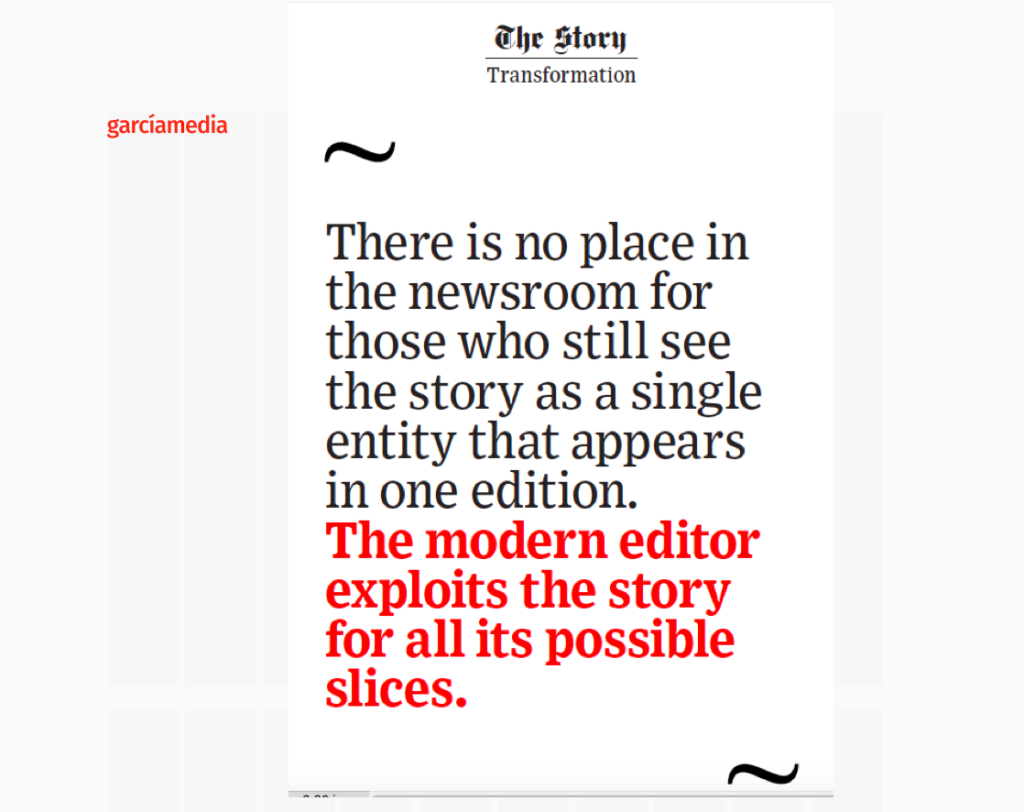
From my mobile storytelling book, The Story (Book 1, Transformation)–2019
The statement above is from my new book, The Story. I have highlighted it as one of those thoughts that I want readers of The Story keep with them. And, of course, I could have written the headline for this item in the CNN’s Reliable Sources Newsletter, which is a must read for me daily.
In this particular edition, the author, Brian Stelter, CNN’s Media expert, writes the following, as part of the special coverage of the pending impeachment inquiry started by Speaker of the House Nancy Pelosi to investigate President Trump:
The news used to “end” — not anymore
What’s different versus the Nixon and Clinton impeachments? Almost everything. “If you go back to Watergate,” Greenfield noted, “once Walter Cronkite and co. signed off at 7:30 on the East Coast back then, the next news you got was when the morning paper hit your door. You could watch PBS’s replay of the Watergate hearings but basically that was it. We would not immediately switch to five hours of frenetic analysis or opinion making. We did not have a bombardment of social media and tweets, so the whole process of unfolding the story, of finding out what happened, was in a much more deliberative phase…”
How a story flows today
This is a topic that I cover very thoroughly in my book, The Story, and one of the reasons that I suggest the presence of “content managers” in the newsroom to make sure that stories with “long legs” that need to be updated regularly, get that treatment.
With the average person returning to his/her phone about 114 times in a day, chances are that many of those times they are coming to the phone to update information about stories of interest.
I use these visuals to illustrate the point of how a story used to flow when I was a reporter at the start of my career: you would write and file your story, then it would appear in the newspaper the next day:
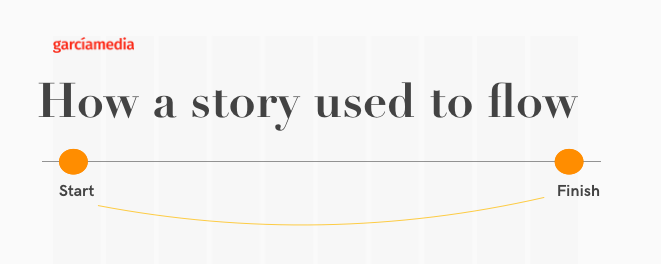
Today, the story develops via a variety of versions, that could start with a push notification or alert, then have updates throughout the news cycle, as we see here with a Washington Post story:
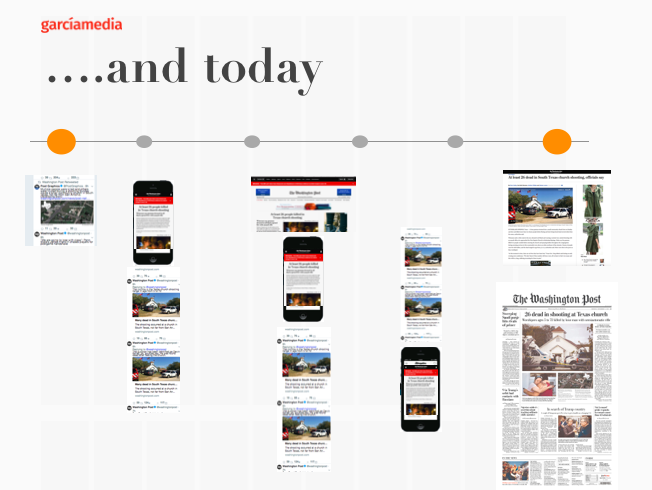
That is the reason that I advise that journalists go beyond thinking of the single story treatment—-looking at the big melon—and, instead, consider slicing the melon to update a story along the way.

This is perhaps one of the most dramatic changes that newsrooms everywhere experience.
It requires that editors abandon the long revered tradition of “the edition”, and start chasing “the stories”.
Indeed, the news used to end, but the news does not end anymore. Skilled journalists create the type of newsroom environment that allows for coverage as long as the story is alive.
From Monocle Weekend
https://monocle.com/minute/2019/09/21/
THE INTERROGATOR / EDITION 30
Mario García
Editorial consultant Mario García has advised the most important newsrooms in the world on design – and how best adapt to a digital transition. More than 700 publications, from The Wall Street Journal to the South China Morning Post, have received his strategic steer. Other than being an adjunct professor at Columbia University’s School of Journalism, he also runs his own consultancy firm: García Media. Nowadays his speciality is how digital devices influence narrative structure and consumption; his latest book, The Story, was written specifically to be read on a phone. Here, though, he confesses to a few analogue pleasures.
What they are saying about The Story!
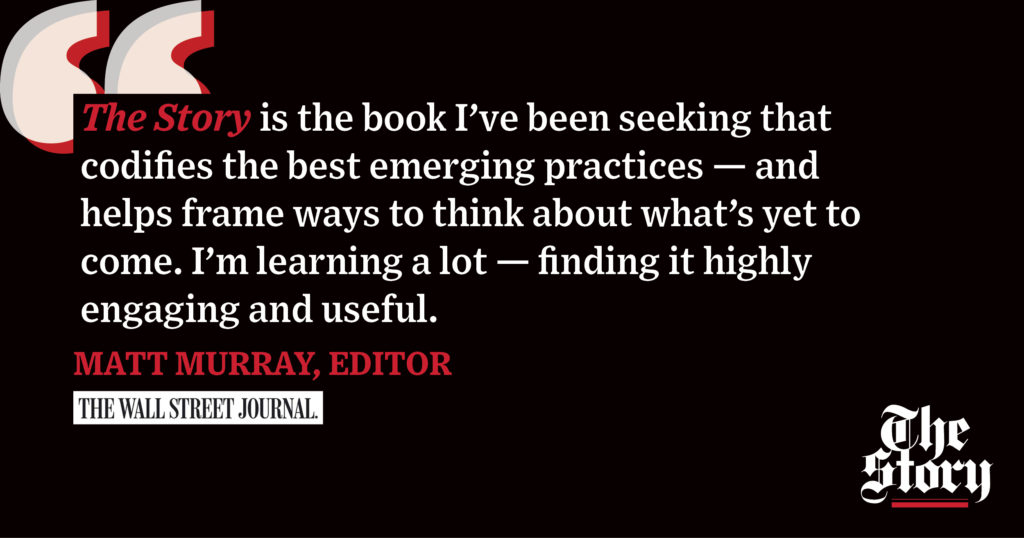
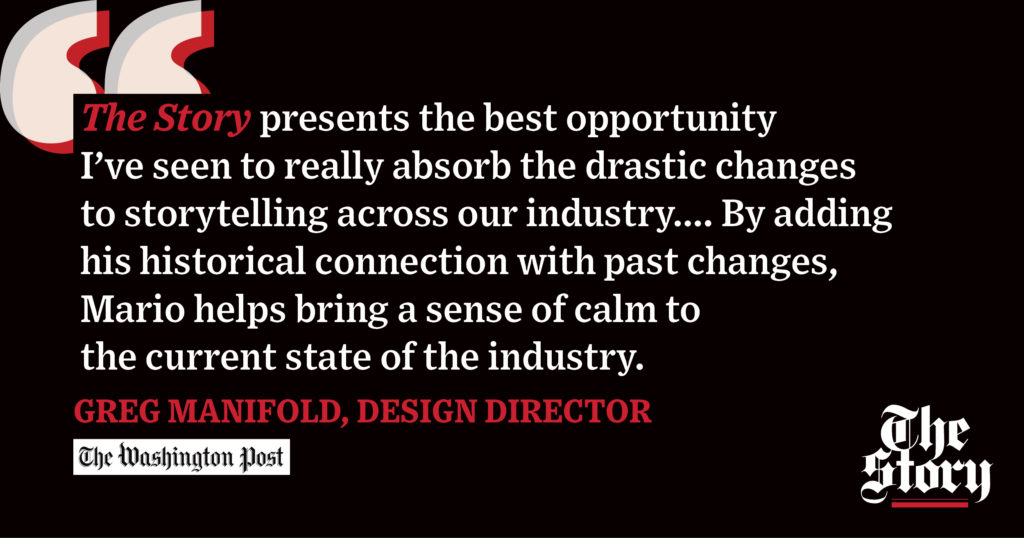
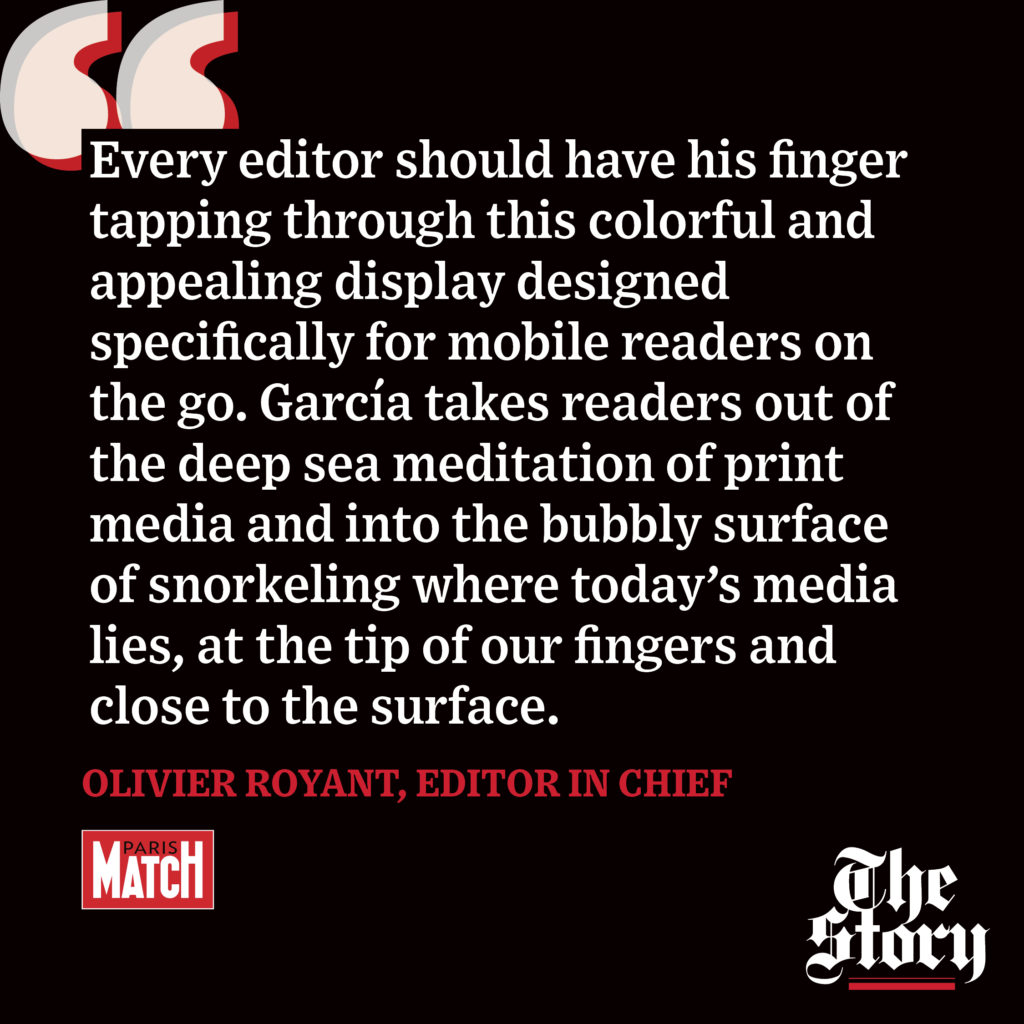
The Story is here!
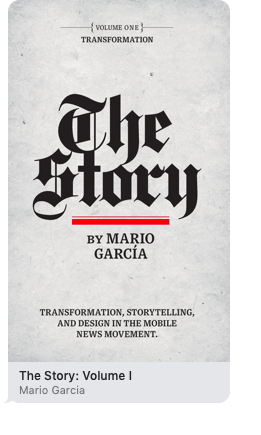
You can now download my new mobile storytelling book, The Story, from Apple Books at $6.99
This is Book 1 of a Trilogy! The other two books coming soon.
https://books.apple.com/us/book/the-story-volume-i/id1480169411
The newspaper remains the most powerful source of storytelling on the planet. But technology threatens its very existence. To survive, the Editor must transform, adapt, and manage the newsroom in a new way. Order The Story by Mario Garcia, chief strategist for the redesign of over 700 newspapers around the world.
My chat with in Monocle Radio
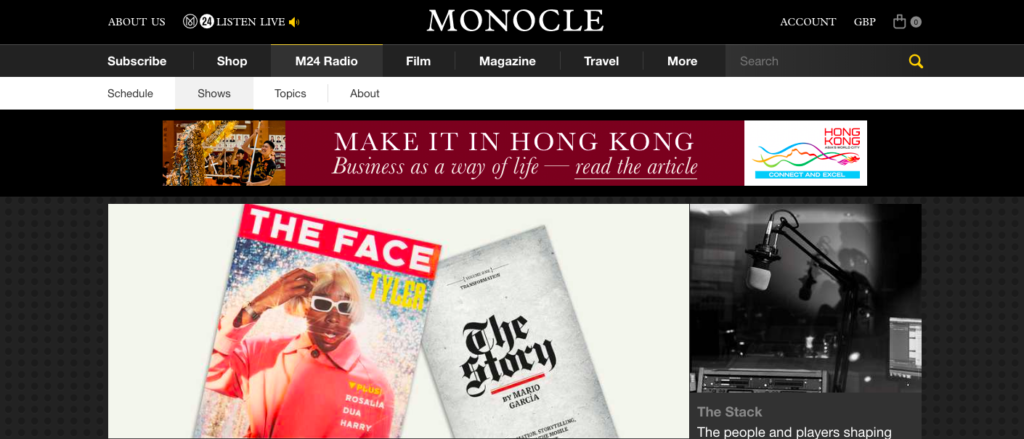
Listen to my chat in Monocle Radio’s The Stack: Latest episode‘The Face’ and ‘The Story’:We welcome the return of the print version of ‘The Face’ and talk to legendary newspaper designer Mario Garcia about his latest book, ‘The Story’.
https://monocle.com/radio/shows/the-stack/368/play/
My interview with CNN en Español
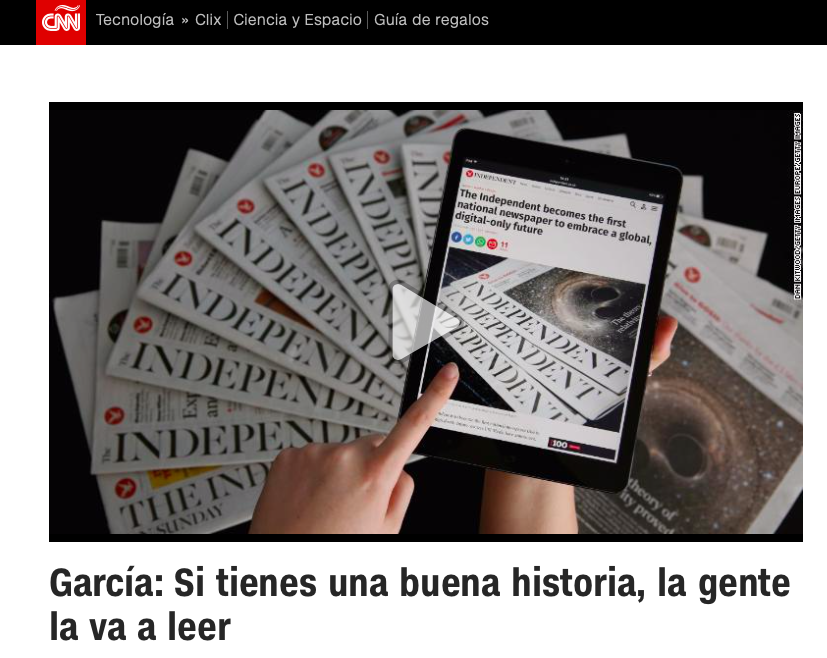
I was a guest in the program Encuentro, hosted by Guillermo Arduino daily at CNN en Español. The interview was about how we read on mobile devices and my introduction of my new mobile storytelling book, The Story, to a Spanish-language audience.
Mario’s speaking engagements
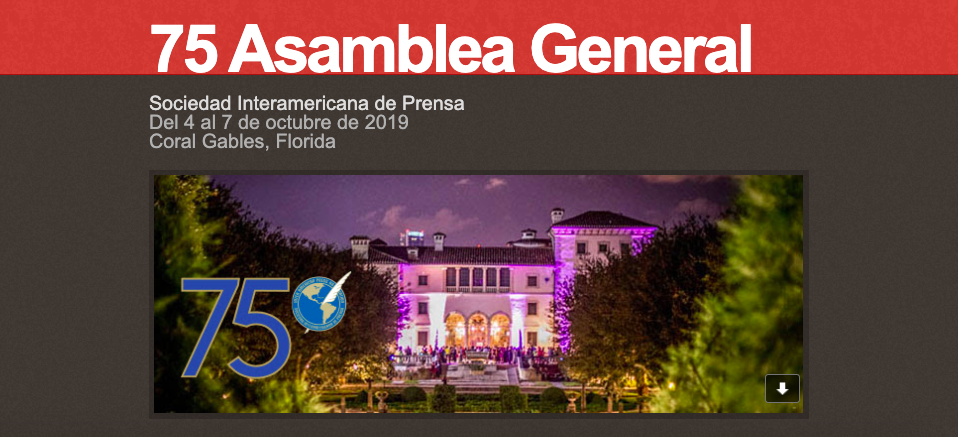
Presentation of The Story at the Sociedad Interamericana de Prensa (SIP) in Miami, as the organization celebrates its 75th anniversary serving the Latin American Press, Miami.
October 4, 2019

Keynote Luncheon Speech: Ad Club of Toronto, Newspaper Day
October 25, 2019

Keynote presentation: Business Information & Media Summit (BIMS).
November 12, 2019
Order print edition of The Story
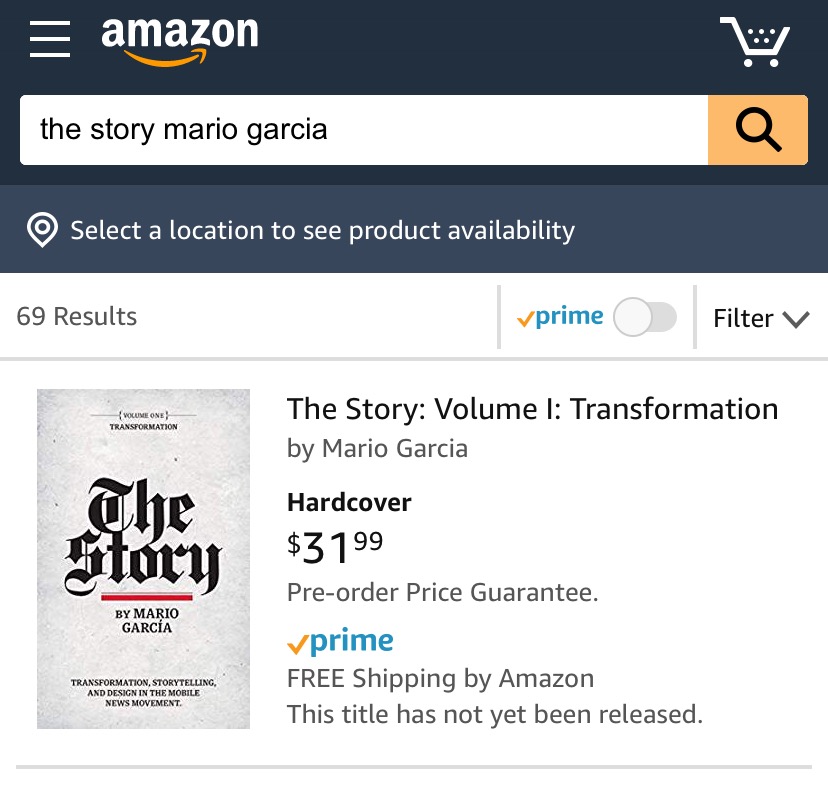
You can order the print edition of my new mobile storytelling book, The Story, from Amazon already here:
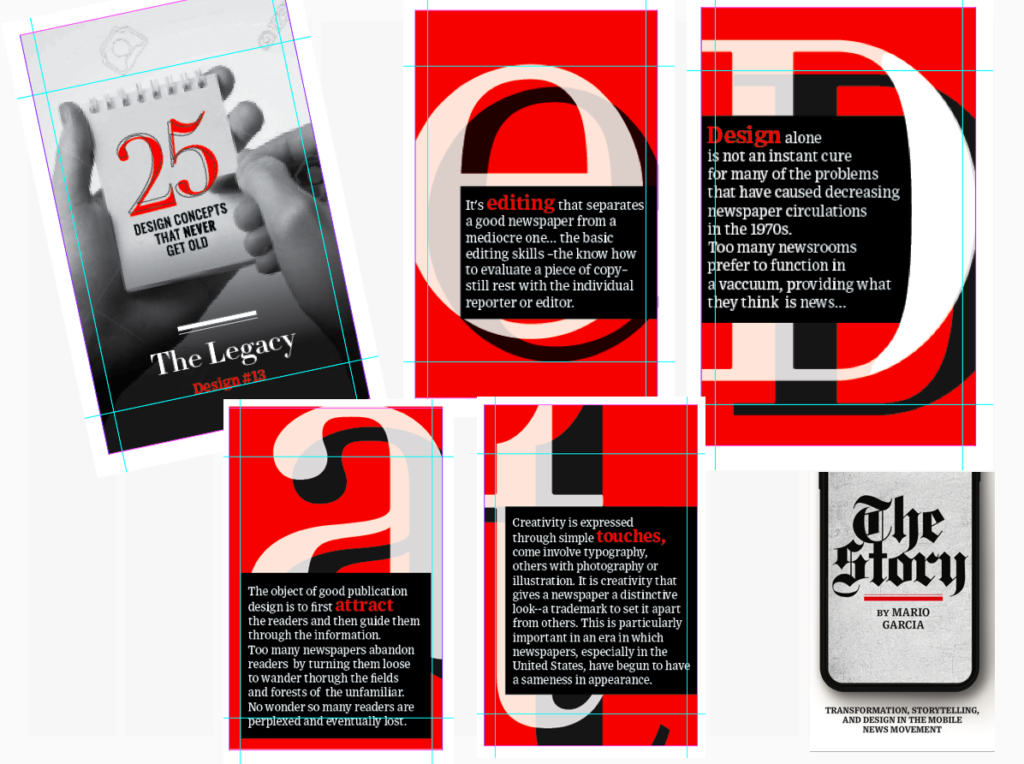

An interview of interest
http://www.itertranslations.com/blog/2019/3/11/fd60ybflpvlqrgrpdp5ida5rq0c3sp
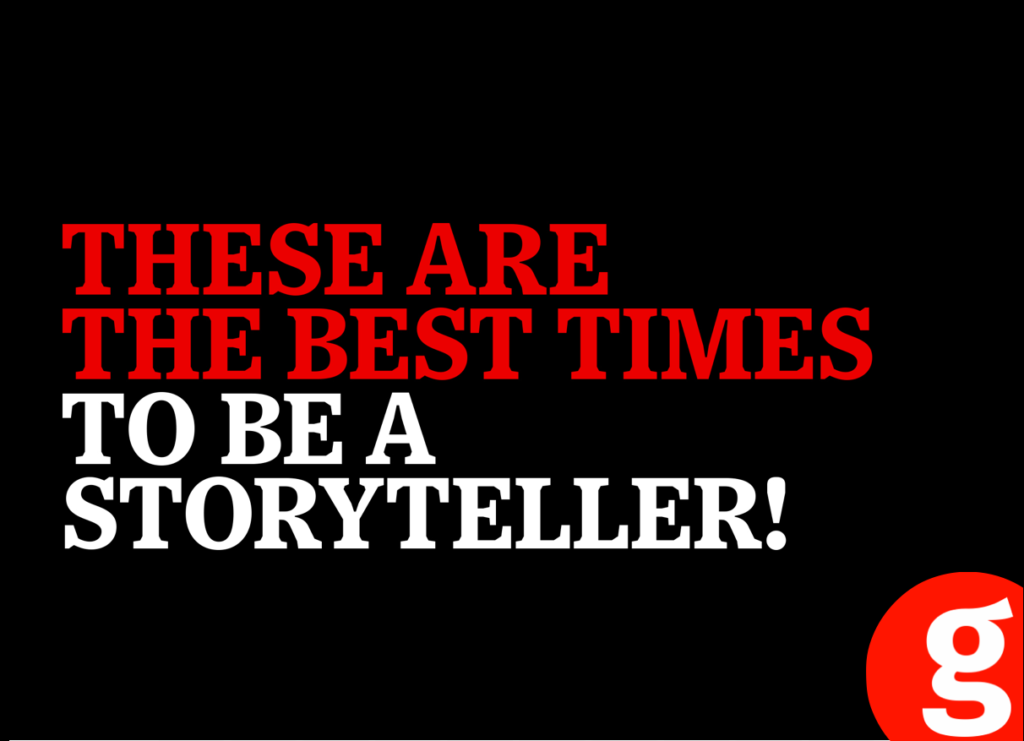
TheMarioBlog post # 3125
